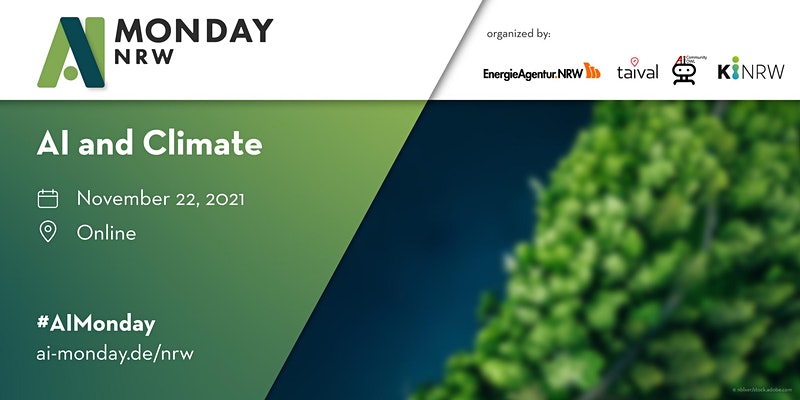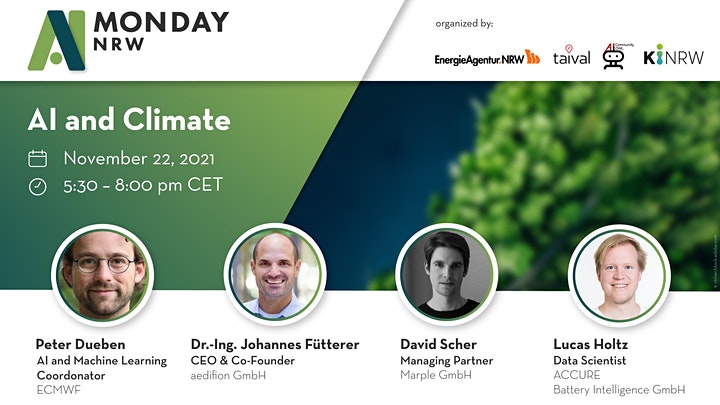
Artificial intelligence offers enormous potential in the fight against global warming. On the one hand, AI can contribute to a better understanding of climate change by analysing immense amounts of data and predict future developments and the effects of measures. On the other hand, AI can help deliver more environmentally friendly and effective solutions, such as optimising energy production and use. At the same time, however, it must be borne in mind that data centres and AI systems, especially the training of models with large amounts of data, can themselves be very resource-intensive.
We are looking forward to share with you a look at the potential of AI in the fight against climate change, and further learn where AI is already in use today.
After the keynotes, you will have the opportunity for direct exchange with the speakers and other participants in separate virtual rooms from about 7 pm. The event will be held in English.
With AI Monday, KI.NRW and AICommunityOWL want to connect those interested in AI in NRW and beyond to discuss the present and future of artificial intelligence and its impact on business and society. The AI Monday event series has been taking place in various European cities since 2017.
Where?
The event is held online:
Agenda
“AI and machine learning in weather and climate modelling” by Peter Dueben, AI and Machine Learning Coordinator at the European Centre for Medium-Range Weather Forecasts ECMWF
This talk will provide an overview on the use of machine learning in Earth system modelling. We will present opportunities and challenges, as well as specific use cases for machine learning in weather and climate modelling. We will outline how machine learning will be an important component of future developments towards digital twins of the Earth and large projects and initiatives such as Destination Earth.
“aedifion – applied AI for climate change action in the real estate sector” by Johannes Fütterer, CEO & Co-Founder, aedifion GmbH
Buildings account for around 40% of global energy consumption. The EU taxonomy as a derivative of the European Green Deal, the rise in CO2 emission costs and the recent increase in energy prices are leading to growing awareness and action to decarbonise the building environment. This presentation will show how aedifion uses artificial intelligence to reduce the energy consumption and CO2 emissions of commercial buildings using cloud-based platform, analytics and control products.
“CoCuRA – Using earth observation and machine learning to identify organic cotton fields” by David Scherf, Managing Partner, Marple GmbH
Only 1.5% of global cotton production is certified organic. Yet demand for organic cotton is booming. This requires new, more efficient methods to facilitate the transition to and the certification of organic cotton production. We aim to provide a cost-effective solution by using satellite data and machine learning to automatically detect, map, classify and monitor cotton growing areas.
“AI and Energy Storage – Making Batteries Predictable” by Lucas Holtz, Data Scientist, ACCURE Battery Intelligence GmbH
Today, millions – if not billions – of batteries degrade way too fast. This leads to an unsustainable supply chain, where batteries are retired long before they should be and often end up in landfills. To utilize the full potential of the batteries’ components, they should instead be retired to second life applications to save rare materials. Enabling the extended use of batteries requires monitoring – but a huge challenge is accurate prediction of battery degradation and safety issues. As such, AI and ML have vital roles to play in providing fast, accurate and scalable results.




